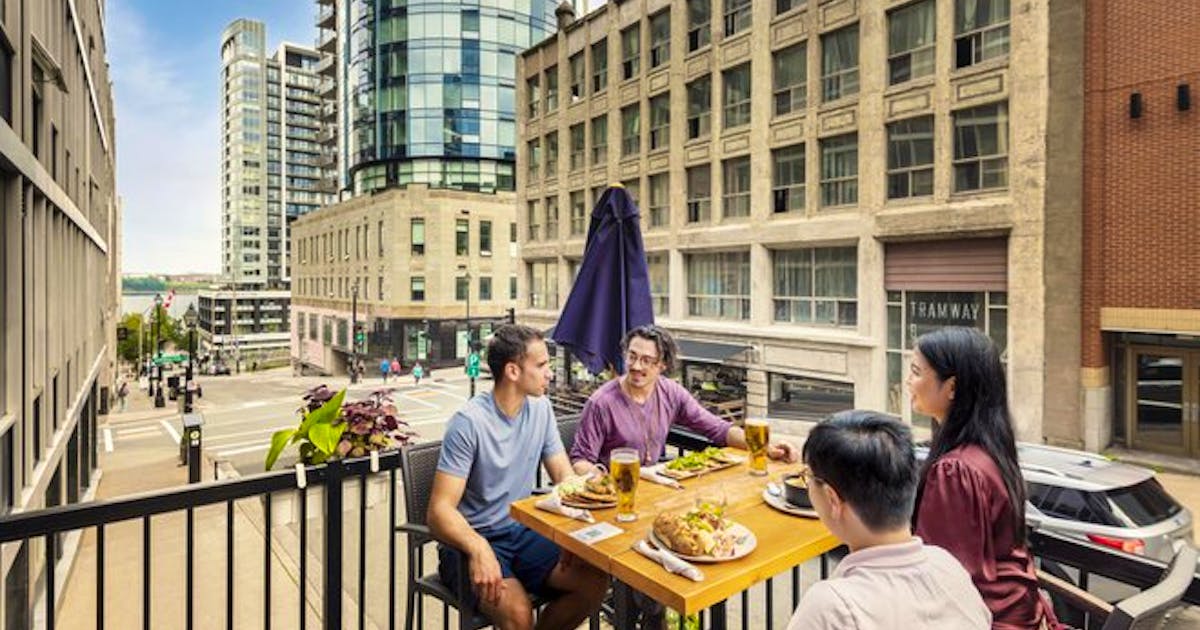With about 700 people expected to show up this June for the in-person reboot of the H2O conference in Halifax, the service industry in the city could also get a boost.
The event is a collaborative effort involving the Ocean Technology Council of Nova Scotia, the Centre for Ocean Ventures and Entrepreneurship and the federal and provincial governments.
“It’s the single biggest concentration of ocean tech companies in Canada at one place, at one time,” said Chris Bourque, executive director of the ocean technology council, in a news release.
The event, June 13-16 at the Halifax Convention Centre, has room for 65 booths, said Bourque, but interest is high and they may push it to 80.
It includes a trade show and guest speakers, as well as a demonstration day at the COVE facility on the Halifax waterfront.
Demo day
Demo day gives companies a chance to show how products ranging from marine sensors, fisheries tech, vessels and underwater robotics work.
Melanie Nadeau, chief executive officer for COVE, said the gathering includes researchers, innovators and operators from aquaculture to oil and gas.
“We expect people from all over the world,” she said, adding that delegations are confirmed to attend from France, Germany, the U.K. and Norway. Among them are investors and venture capitalists.
It adds up to a big opportunity for ocean tech businesses from Atlantic Canada to connect with potential investors and new clients.
Spinoff spending
Gordon Stewart is hopeful the spending won’t be limited to deals made inside the convention centre. The executive director of the Nova Scotia Restaurant Association said this first major in-person convention for the summer season will also help revive the service industry in Halifax and beyond.
“We’re actually getting back to a piece of the market that’s been lost to the industry for the past couple of years, and that’s the meeting and convention business.”
If some of those delegates decide to stay a little longer in Nova Scotia, it will be good for outlying areas, Stewart said.
“Whether it’s Lunenburg, or Cape Breton or down in the Valley, they all benefit as well.”
He said business and vacation travellers are crucial for service industries, and 2022 appears to be the year for those things to get back to normal.
Still, there are some challenges as restaurants prepare for more business. Labour is the biggest, Stewart said, and some operators have had to adjust their hours of opening because of staff shortages.
They’ll look to post-secondary students to fill some of the gaps, as usual, but with every industry looking to fill jobs, Stewart figures restaurants will still fall short by about 2,000 people.
There’s also the challenge of supplies and the rising cost of food.
“If someone comes here and wants a lobster dinner, who knows what the price of that lobster dinner will be?”
Still, Stewart said, there’s optimism within the industry.
“Certainly the first turnaround was a little bit stronger than we had anticipated, and sales were very good from the local market.”
The uptick in COVID cases over the past few months created some problems for restaurants, he said, but “most seemed to push their way through it. Hopefully, that’s more behind us than ahead of us.”
